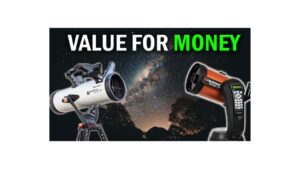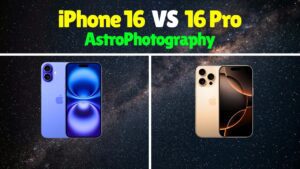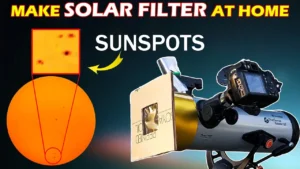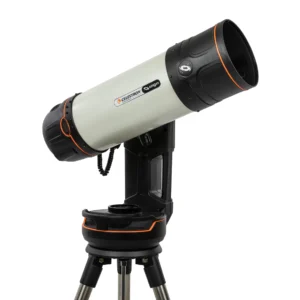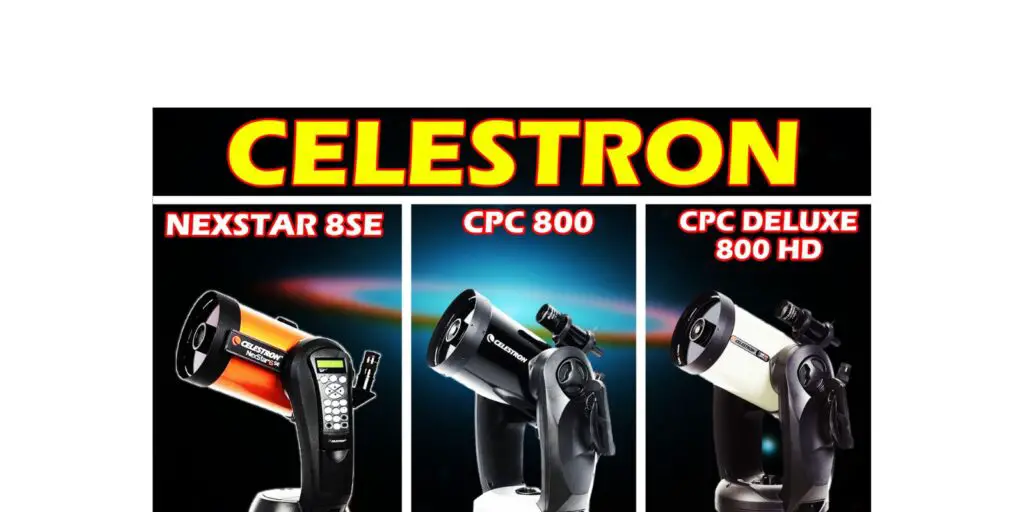
In previous articles, we have seen the comparison of the different telescopes from Celestron. There is one more series of Celestron which offer giant aperture telescopes. So in this article, we will compare 8-inch telescopes from the NexStar SE series & CPC series. The CPC series has two 8-inch telescopes. One is CPC 800 and the other is CPC Deluxe 800 HD.
Details of NexStar 8SE
The orange color tube is the signature of the SE series. 8SE is the most popular orange tube telescope from the Celestron Nexstar SE series. It has an aperture of 8-inches around 203mm. Its focal length is 2032mm & focal ratio is 10. The telescope comes with one 25mm eyepiece. You can get 81X magnification with this eyepiece. The highest useful magnification you get with this telescope is 480X & the lowest useful magnification you get is 29X. The weight of the optical tube assembly is 12lbs around 5.5kg.
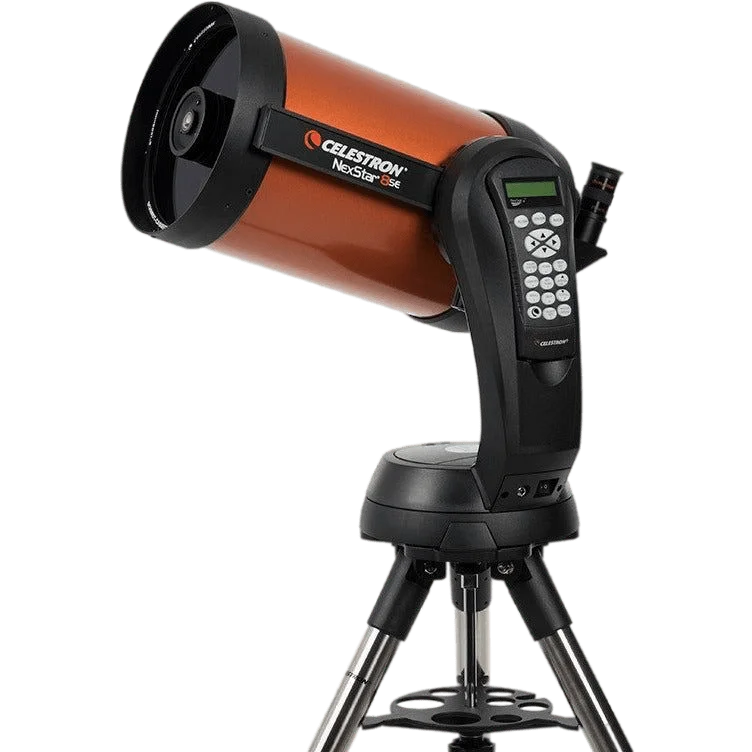
NexStar 8SE mount
The telescope has a computerized alt-azimuth single fork mount. The weight of the mount is 11lbs around 5kg. The total weight carrying capacity of this mount is 12lbs around 5.5kg. The tripod on which the mount sits has a weight of 9lbs around 4kg. The mount has a database of 40,000 celestial objects. You can type in any object you want, the computerized mount will guide you to that object.The mount runs on 8 AA batteries but these batteries can get drained easily. So it is always recommended to buy an external battery power supply with this telescope. The total weight of the NexStar 8SE telescope kit is 34lbs, around 15kg.
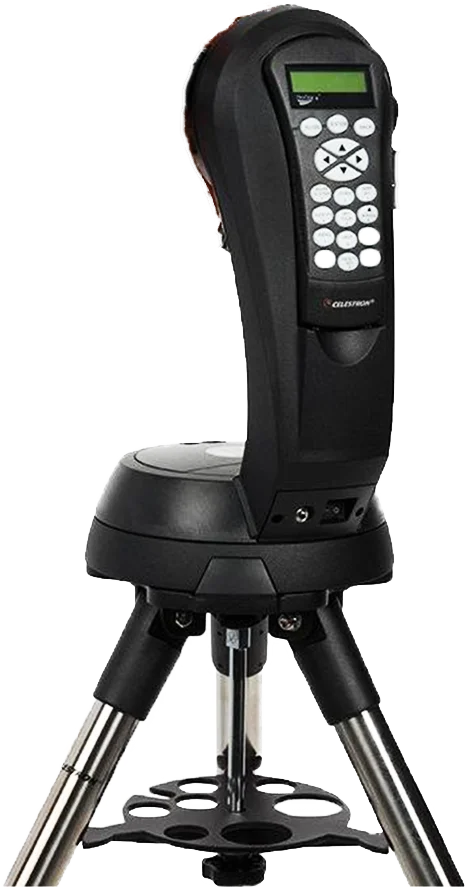
Details of the Celestron CPC 800
The telescope has an 8-inch aperture of around 203mm. Its focal length is 2032mm and its focal ratio is 10. If you look at the details of the optical tube assembly of CPC 800 & 8SE. You will find that both optical tubes are exactly the same. CPC 800 comes with one 40mm eyepiece, with this eyepiece you can get 51X magnification with this telescope. The highest & lowest useful magnifications of the telescope are the same as 8SE which is 480X and 29X.
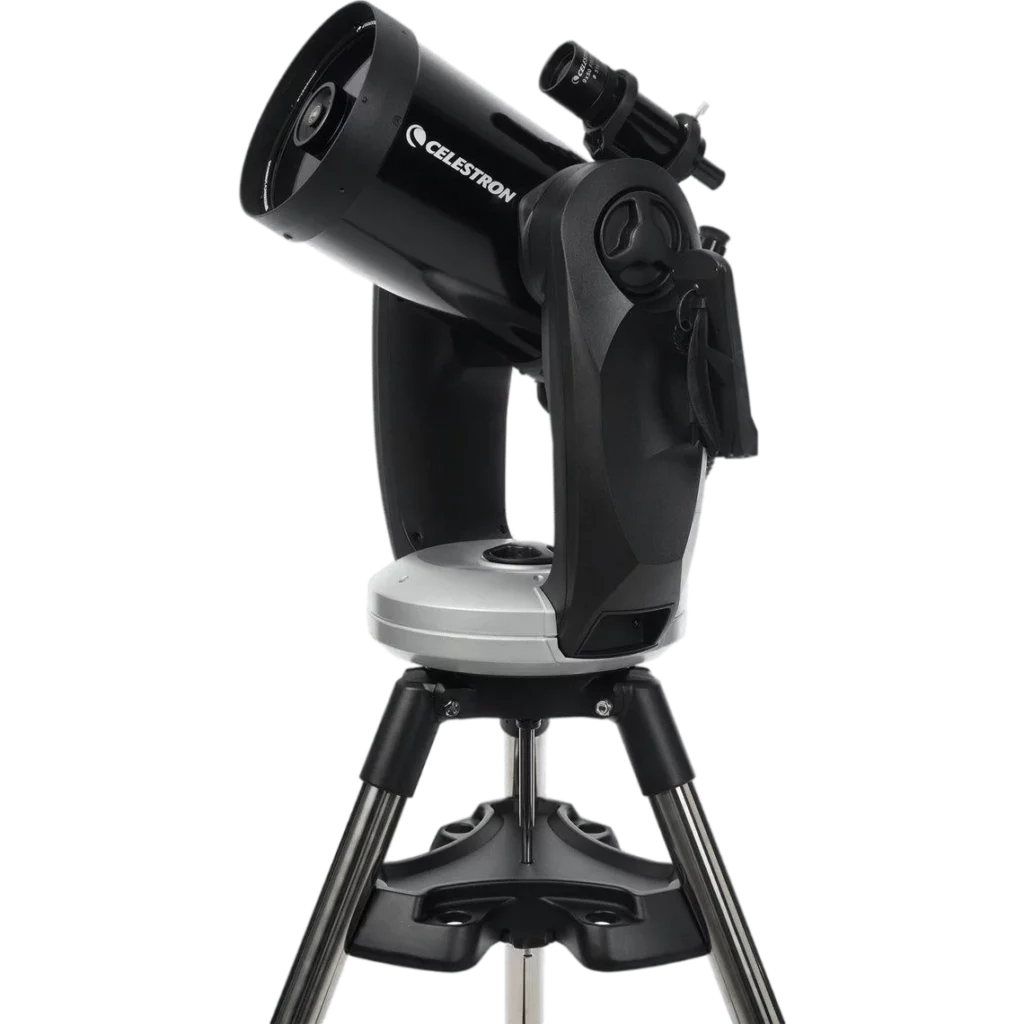
Celestron CPC 800 mount
The main difference between these two Telescopes is the Mount. The mount which comes with the CPC 800 is the computerized double fork alt-azimuth mount. The double fork mount adds more stability to the setup. The mount weighs 30 lbs around 14 kg.
The tripod on which the CPC mount sits weighs 19 lbs around 8.6kg. The tripod legs of the CPC mount have a bigger leg diameter of 2-inches. However, the 8SE tripod has a leg diameter of 1.5-inches. This bigger leg size of the tripod does add up to more stability while stargazing. The Total weight of the CPC 800 telescope kit is 62 lbs around 27.6 kg. The mount has 6-inch brass gears, and stainless steel gears, and steel & nylon ball bearing. The CPC 800 mount also has an inbuilt GPS. Which is very helpful for setting up the telescope.
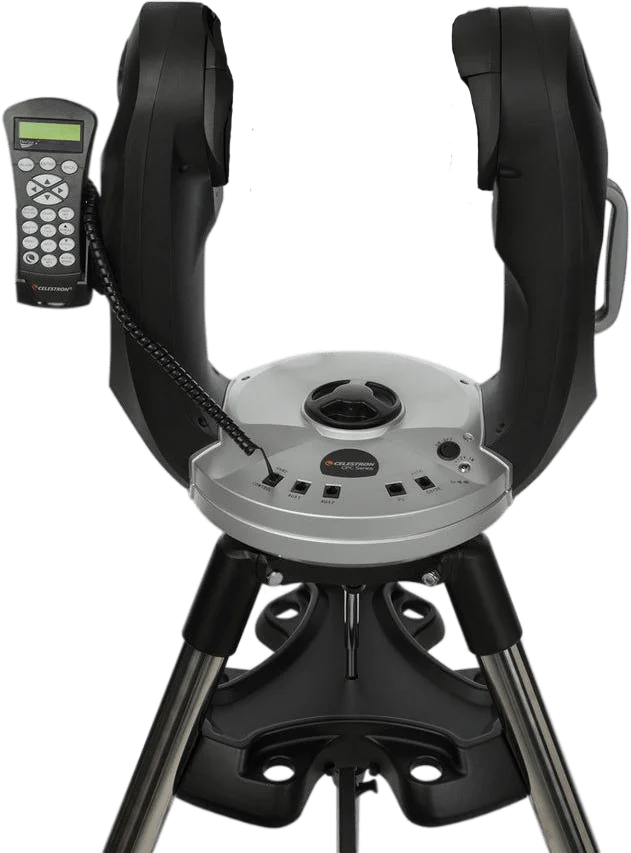
One of the advanced features of the CPC mount is that it has a periodic error correction. This feature is very much helpful in astrophotography. The periodic error occurs because of mechanical errors and is usually unavoidable. These mechanical errors occur during the tracking for astrophotography. These errors are part of the drive system and are very predictable. The periodic error correction system records these errors and then tries to reduce these errors. So ultimately you get accurate and smooth tracking with this mount.
Details of the CPC Deluxe 800 HD
When it comes to optical tube assembly, dimensions, and mount, the CPC 800 & CPC Deluxe 800 HD is exactly the same. The only difference between these two telescopes is the Optics. The optics of the CPC Deluxe 800 HD are superior.
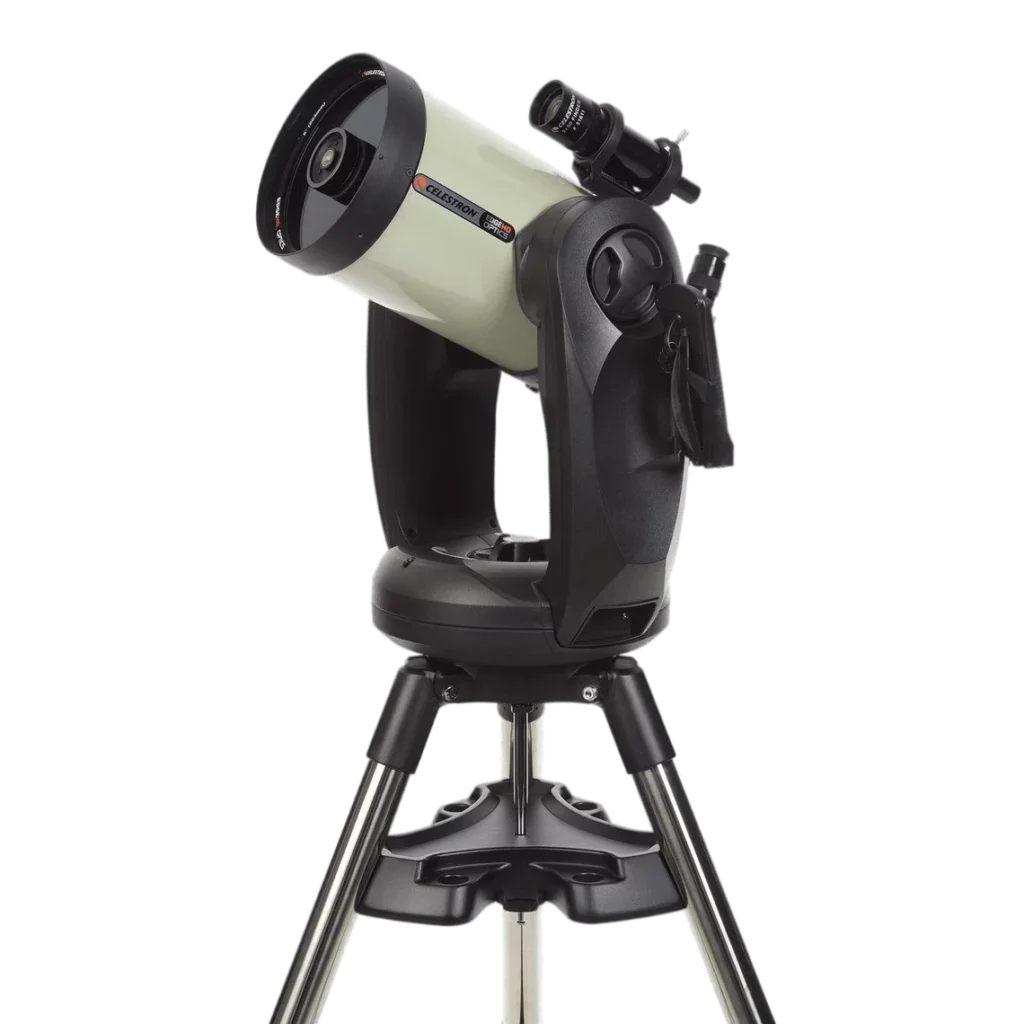
The CPC Deluxe 800 HD has Edge HD optics. We have explained about the Edge HD optic previously. The simple difference between the normal optics and the Edge HD optic is, with Edge HD you get a flat field of view throughout. When you observe through a normal telescope & in the field of view as you go away from the focus of your target toward the edge. The objects look blurred and ring-shaped. But with Edge HD as you go away from the focused target towards the edge of the field of view. The other objects in the field of view will still look sharp. So the Edge HD gives coma, field curvature, & aberration-free supersharp images.
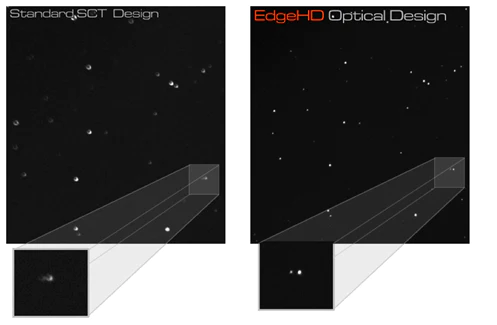
Astrophotography with these telescopes
All these telescopes are costly. So a good astrophotography performance from them is a normal expectation. Though these telescopes have different mounts both these mounts are alt-azimuth type mounts. If you do not know different types of mounts then watch this video on the channel.
So, all these telescopes are good for short-exposure astrophotography of the moon and the nearby planets. The CPC mount can track upto 30 seconds very accurately if you want longer exposure then you will need to buy a wedge.
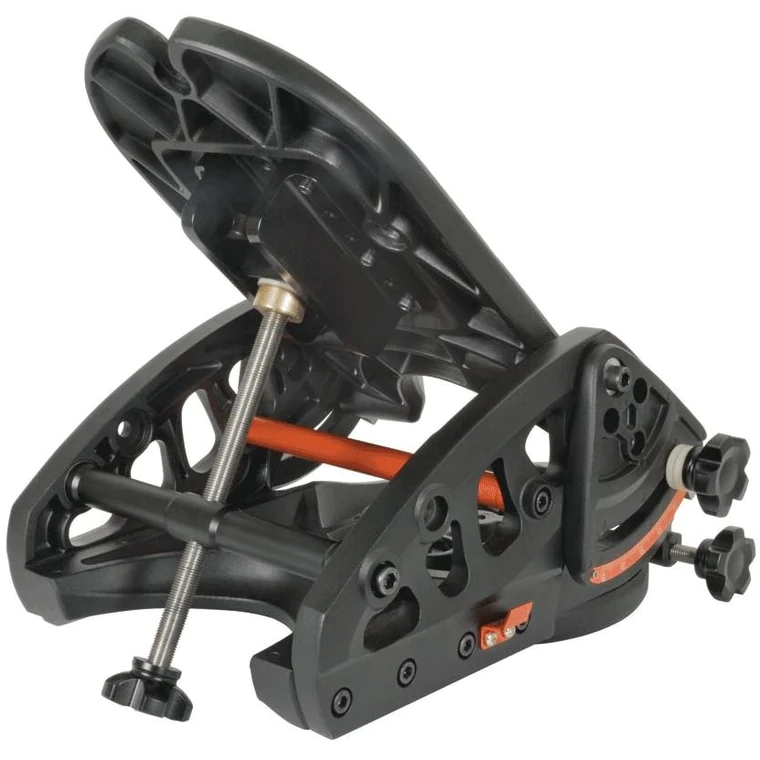
A wedge will convert your alt-azimuth mount into an equatorial mount and then you can use all these three telescopes for the long exposure astrophotography.
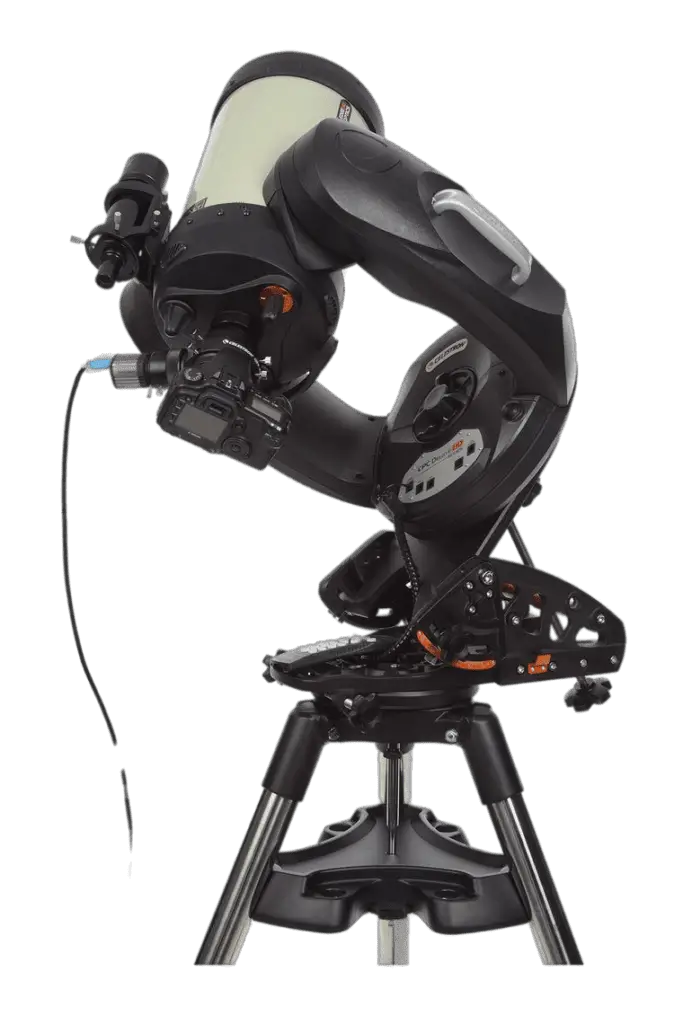
Which one should you buy?
Of these three the NexStar 8SE is the cheapest one. So if you have a smaller budget then you can go with the 8SE. The 8SE also weighs only 34 lbs compared to CPC 800 which weighs 62 lbs. So if you are someone who travels a lot and wants a big aperture telescope then 8SE will be very convenient for you.
When your mount has vibrations or if it wobbles then it loses all the appeal of your telescope. If you are someone who wants a good sturdier mount that offers great stability and stable views then you should go with the CPC 800.
If you are looking for the best image quality and stability then CPC Deluxe 800 HD is for you.
Summary
| NexStar 8SE | CPC 800 | CPC Deluxe 800 Edge HD | |
| Aperture | 203.2mm (8″) | 203.2mm (8″) | 203.2mm (8″) |
| Focal Length | 2032mm (80″) | 2032mm (80″) | 2032mm (80″) |
| Focal Ratio | f/10 | f/10 | f/10 |
| Highest Useful Magnification | 480x | 480x | 480x |
| Lowest Useful Magnification | 29x | 29x | 29x |
| OTA weight | 12 lbs (5.4 kg) | 12.5 lbs (5.67 kg) | 14 lbs (6.35 kg) |
| Mount Type | Single fork AZ mount | Double fork AZ mount | Double fork AZ mount |
| Mount Load Capacity | 12 lbs (5.44 kg) | 34 lbs (15.8 kg) | 34 lbs (15.8 kg) |
| Total Weight | 34 lbs (15.8 kg) | 62 lbs (27.6 kg) | 62 lbs (27.6 kg) |
| BUY HERE | BUY HERE | BUY HERE |
If you are looking for a telescope specifically for astrophotography then you need to check this article. You can also find the best suitable telescope for you with our telescope suggestion tool.

